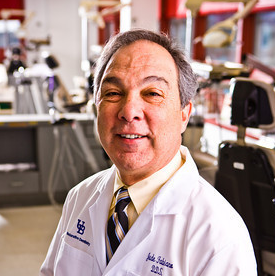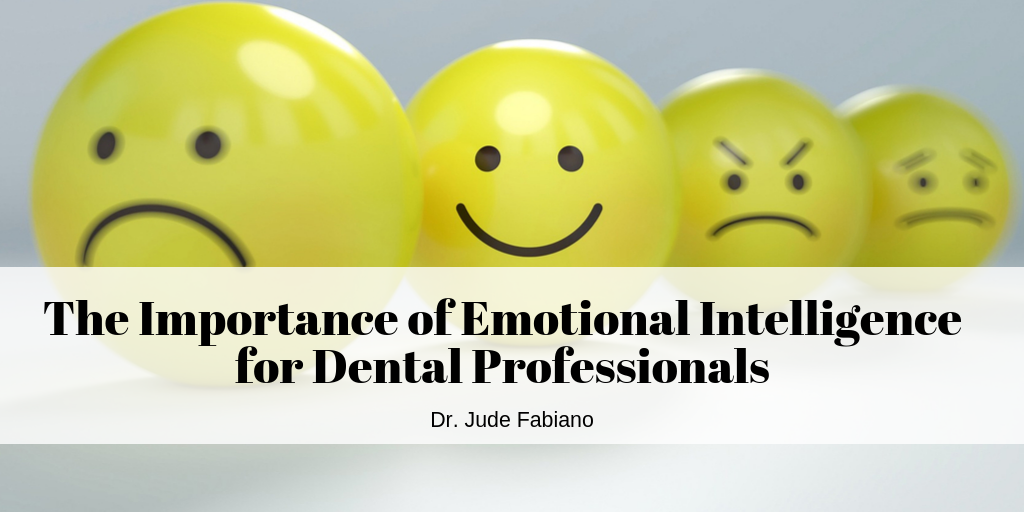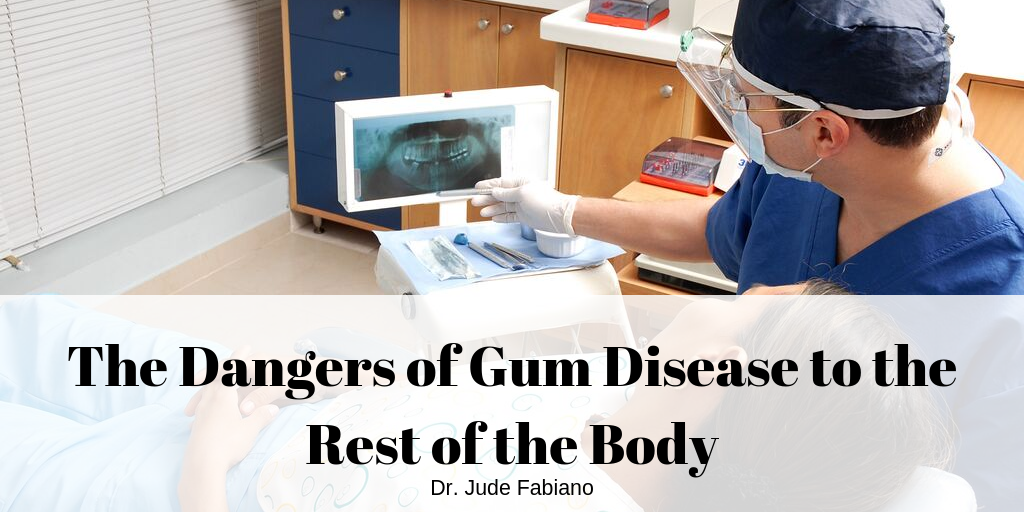About Dr. Jude Fabiano
For over 35 years, Dr. Jude Fabiano, D.D.S. has worked in the world of dentistry, establishing himself as a respected authority on the subject in the greater Buffalo area. During the late 1970s, after completing his General Dental Residency, Dr. Fabiano partnered with another doctor to open a private practice for general dentistry. Dr. Jude Fabiano ran this practice for 21 years, where he saw a significant number of patients with mental and physical disabilities. This meant treating a large number of patients in the operating room, since it was impossible to treat them while they were conscious.
After 21 years at his practice, Dr. Jude Fabiano was forced to retire due to a medical condition that prevented him from practicing clinical dentistry. Dr. Fabiano then joined the University at Buffalo School of Dental Medicine, where he served as a Clinical Associate Professor, Director of the Advanced Education in General Dentistry Program and as Associate Dean for Clinical Affairs. In this capacity, Dr. Fabiano helped to develop two major organizations at the school, Counseling, Advocacy, Referral, Education and Service (CARES) and Buffalo Outreach and Community Assistance (BOCA). Dr. Jude Fabiano founded the CARES program with the School of Social Work to assist patients if they had issues, such as mental, financial or transportation-related, that prevented them from getting proper dental care. This program received significant attention from the people not only in the Buffalo area, but also throughout Western New York and Southern Ontario, and was recognized by the American Dental Association.
While CARES worked to help the people of the Buffalo area, BOCA was a missionary-type program that arranged outreach missions to provide free dental care to underprivileged areas in the rural United States, Mexico, the Caribbean, Southeast Asia and Africa. BOCA proved to not only be extremely helpful for those it serviced but also extremely rewarding for those students and dentists, including Jude Fabiano himself, who regularly took part in these outreach events.
Together with his wife of 45 years, Eileen, a 1977 graduate of the University at Buffalo’s School of Nursing, Dr. Jude Fabiano participated in nearly 20 outreach trips over the past 15 years. As an adjunct faculty member of UB’s Dental School, Eileen, an RN with over 40 years of clinical experience, worked side by side with Jude, screening hundreds of patients at each location by taking medical histories, blood pressures, blood sugars, and other medical information prior to their dental treatment. Eileen and Jude were instrumental in bringing a young woman to Buffalo for a life-threatening surgery in 2007. Her surgery and aftercare were completely donated by local surgeons and a Buffalo hospital. The young woman stayed with the Fabiano family for four months as their “guest” while they cared for her during her recovery. Her medical problem was identified during the screening process in the Dominican Republic when she came to seek dental treatment.
Dr. Jude Fabiano left the University of Buffalo in 2013 to pursue a career at Ivoclar Vivadent, Inc., a dental material company, where he currently serves as the Director of Corporate Education. In this capacity, Dr. Fabiano has been responsible for the creation of an effective, integrated learning organization for the company that works to help it not only effectively teach its staff, but also meet its business goals and fit in with their overall strategy and vision. This includes developing a solid curriculum, collaborating with management, improving the current learning program and effectively executing all responsibilities associated with corporate education.

-
Dr. Jude Fabiano DDS, the face of dentistry in the Buffalo area

Teeth Whitening: Pros and Cons
Anyone who regularly consumes coffee, tea or red wine knows that what we ingest can affect the whiteness of our smile. For people who want a white smile but don’t want to change their diet, there are professional and over-the-counter options for teeth whitening.
Both options use peroxide, a whitening agent. The peroxide product used by professionals is much stronger than over-the-counter options, but they work in similar ways.
Professional Whitening
Professional whitening can cost more than $500 and usually is not covered by dental insurance. When teeth are professionally whitened, the effects are immediate and last for years. This is because the concentrated peroxide product dehydrates the tooth while simultaneously bleaching it. As the tooth rehydrates over the next few weeks, it’s common for the teeth to darken a few shades. However, that often leads to a natural white that many people desire.
Over-the-Counter Options
If you walk into the toothpaste aisle of any store, you’ll see a plethora of strips, gels and mouthwashes that promise you a whiter smile. It will likely take multiple applications over a week or two, so it’s more of a commitment than professional whitening. However, it is the more affordable option.
Additional Considerations
As we age, our tooth enamel thins. This makes the yellow-hue of our dentin more visible, which is why yellow teeth is more common in the aging community. Bleaching products only work by removing stains from enamel, not dentin, so this is one situation where natural teeth can’t be whitened. Whitening products also won’t work on most fillings or crowns.
I’d caution people to be weary of using natural methods for teeth whitening, such as lemon juice or charcoal. These substances are risky because they can damage your tooth enamel, leading to more visible (yellow) dentin, as well as less protection from tooth decay.
If you’re considering tooth whitening of any kind, be sure to consult your dentist first. They can point you in the right direction, whether it be an over-the-counter product or a professional whitening job. They will likely also recommend a professional cleaning prior to any whitening attempt because teeth that are free from plaque, tartar and stains respond better to bleaching products.
Above all, remember that a white smile doesn’t necessarily indicate a healthy smile. Always make your oral health a priority over the physical appearance of your teeth. Anyone with sensitive teeth may be advised to avoid whitening treatments, and maintaining gum health should always be a priority.

The Importance of Emotional Intelligence for Dental Professionals
Emotional intelligence is a way to measure a person’s ability to connect with others. When a person can recognize emotions in others and react appropriately, it can lead to a better experience in both professional and personal relationships.
There are many ways to measure the difference between a good dentist and a great dentist. For most patients, the deciding factor is how they feel when they walk into the office. When people are comfortable with the staff in their dentist’s office, they’re more likely to look forward to the visits and return regularly.
Emotional Intelligence is Vital to Patient Care
The medical side of dentistry is only half the battle. Those in the dental industry also need to have a strong focus on patient care, and that begins with emotional intelligence. Luckily, it’s a skill that people can learn if they don’t possess it already.
During my tenure in the education sector, I focused heavily on improving the quality of dental care for people with disabilities and the elderly. These are often the groups of people who benefit most from dental professionals who are specially in-touch with their needs. Dental anxiety can be a huge factor that prevents people from receiving treatment. When dental professionals understand this, they can work harder to engage with their patients and hear their concerns to find solutions that work for each individual.
Conveying Your Message
In addition to making dental visits more enjoyable, emotional intelligence can also aid in a patient’s compliance with treatment recommendations. Facts and statistics may help some patients understand the importance of caring for their oral health, but that’s not always the case. Tapping into a person’s emotions is often the best way to change their behavior in the long run. They may not always see and understand things the way you do, so it’s important to speak their language.
Allowing for Consistently Positive Experiences
Another part of emotional intelligence is a person’s ability to understand their own emotions and how their actions affect others. If a dentist is having a bad day, it’s important that it doesn’t affect the way he or she communicates with patients and office staff.
Dentistry is a highly technical field that sometimes requires a certain level of objectivity. Professionals in the dental profession must learn to effectively balance both the technical side and the emotional side of their actions if they want to provide the best possible care for their patients.

The Dangers of Gum Disease to the Rest of the Body
When most people think about gum disease, their main fear is getting a disease that will make them lose their teeth. It is true that gum disease is one of the leading causes of tooth loss, but that is not the only issue associated with gum disease. Gum disease can actually easily affect many other parts of the body. Here are some of the many reasons people should be concerned about gum disease.
How Gum Disease Harms the Rest of the Body
So how does a mouth condition harm other parts of the body? Gum disease is an infection of certain types of bacteria that can flourish in the mouth when it is not cared for properly. Since blood vessels in the gums are easily breached, bacteria can easily get into the circulatory system and travel throughout the body. This can cause all sorts of inflammation that may lead to blood clots and other problems.
Health Conditions Linked to Gum Disease
Since inflammation and blood clotting are so dangerous, gum disease is linked to a number of health problems. One of the strongest connections is between gum disease and diabetes. Research has found that even small levels of gum disease can make it much harder for the body to control glucose metabolism. There is also evidence linking gum disease to heart disease, so it can cause problems that may lead to heart attacks and strokes. Other health conditions that are linked to gum disease include kidney problems, asthma, cancer, osteoporosis, and Alzheimer’s disease.
How to Prevent Gum Disease
Those who feel concerned about their chances of getting these conditions have several ways of lowering their risks. Gum disease is a very easily preventable condition for most people. Prevention is as simple as taking care of the gums during a person’s oral hygiene routine. In addition to brushing teeth twice a day, it is important to floss once a day. This gets into many of the narrow areas right along the gum line that a brush cannot reach. Swishing with an antibacterial mouthwash and getting regular cleanings at the dentist are also essential to prevent gum disease.
